학회지 리뷰
Journal of Microbiology Special Issues

Journal of Microbiology, Volume 60, Number 4, 355–363
DOI 10.1007/s12275-022-1514-4
The rationale and potential for using Lactobacillus in the management of periodontitis
Jiaqi Wang1, Yingman Liu1, Weiru Wang1, Jiaojiao Ma1, Manman Zhang2, Xiaoying Lu2, Jie Liu3, and Yurong Kou1,2*
1Department of Periodontics, School and Hospital of Stomatology, China Medical University, Liaoning Provincial Key Laboratory of Oral Diseases, Shenyang 110122, P. R. China,
2Department of Oral Biology, School and Hospital of Stomatology, China Medical University, Liaoning Provincial Key Laboratory of Oral Diseases, Shenyang 110122, P. R. China,
3Science Experiment Center, China Medical University, Shenyang 110122, P. R. China
DOI 10.1007/s12275-022-1514-4
The rationale and potential for using Lactobacillus in the management of periodontitis
Jiaqi Wang1, Yingman Liu1, Weiru Wang1, Jiaojiao Ma1, Manman Zhang2, Xiaoying Lu2, Jie Liu3, and Yurong Kou1,2*
1Department of Periodontics, School and Hospital of Stomatology, China Medical University, Liaoning Provincial Key Laboratory of Oral Diseases, Shenyang 110122, P. R. China,
2Department of Oral Biology, School and Hospital of Stomatology, China Medical University, Liaoning Provincial Key Laboratory of Oral Diseases, Shenyang 110122, P. R. China,
3Science Experiment Center, China Medical University, Shenyang 110122, P. R. China
Periodontitis refers to a wide range of the inflammatory conditions of supporting dental structures. For some patients with periodontitis, antibacterial agents are needed as an adjuvant to mechanical debridement treatments and oral hygiene maintenance. However, the widespread use of broad-spectrum antibiotics for the prophylaxis and treatment of periodontal infections results in the emergence of resistant pathogens. Therefore, probiotics have become markedly interesting to researchers as a potentially safe alternative to periodontal treatment and maintenance. Probiotics have been used in medicine for decades and extensively applied to the treatment of inflammatory diseases through the modulation of microbial synergy and other mechanisms. A growing amount of evidence has shown that using Lactobacillus strains for oral cavity maintenance could improve periodontal health. In this study, we reviewed studies showing proof of the inhibitory effects of Lactobacillus species on periodontal inflammation. We also explored the rationale and potential for using Lactobacillus species in the management of periodontitis.

Journal of Microbiology, Volume 60, Number 5, 451–460
DOI 10.1007/s12275-022-2009-z
The crosstalk between bacteria and host autophagy: host defense or bacteria offense
Lin Zheng1, Guolin Li1,2* and Fang Wei1*
1Center for Biomedical Aging, National & Local Joint Engineering Laboratory of Animal Peptide Drug Development, College of Life Sciences, Hunan Normal University, Changsha, Hunan 410081, P. R. China
2Key Laboratory of Hunan Province for Model Animal and Stem Cell Biology, School of Medicine, Hunan Normal University, Changsha, Human 410081, P. R. China
DOI 10.1007/s12275-022-2009-z
The crosstalk between bacteria and host autophagy: host defense or bacteria offense
Lin Zheng1, Guolin Li1,2* and Fang Wei1*
1Center for Biomedical Aging, National & Local Joint Engineering Laboratory of Animal Peptide Drug Development, College of Life Sciences, Hunan Normal University, Changsha, Hunan 410081, P. R. China
2Key Laboratory of Hunan Province for Model Animal and Stem Cell Biology, School of Medicine, Hunan Normal University, Changsha, Human 410081, P. R. China
Xenophagy is a specific selective autophagy for the elimination of intracellular bacteria. Current evidence suggests that the processes for host autophagy system to recognize and eliminate invading bacteria are complex, and vary according to different pathogens. Although both ubiquitin-dependent and ubiquitin-independent autophagy exist in host to defense invading bacteria, successful pathogens have evolved diverse strategies to escape from or paralyze host autophagy system. In this review, we discuss the mechanisms of host autophagy system to recognize and eliminate intracellular pathogens and the mechanisms of different pathogens to escape from or paralyze host autophagy system, with a particular focus on the most extensively studied bacteria.

Journal of Microbiology, Volume 60, Number 6, 561–575
DOI 10.1007/s12275-022-2087-y
Host–microbial interactions in metabolic diseases: from diet to immunity
Ju-Hyung Lee and Joo-Hong Park*
School of Biological Sciences and Institute of Microbiology, Seoul National University, Seoul, 08826, Republic of Korea
DOI 10.1007/s12275-022-2087-y
Host–microbial interactions in metabolic diseases: from diet to immunity
Ju-Hyung Lee and Joo-Hong Park*
School of Biological Sciences and Institute of Microbiology, Seoul National University, Seoul, 08826, Republic of Korea
Growing evidence suggests that the gut microbiome is an important contributor to metabolic diseases. Alterations in microbial communities are associated with changes in lipid metabolism, glucose homeostasis, intestinal barrier functions, and chronic inflammation, all of which can lead to metabolic disorders. Therefore, the gut microbiome may represent a novel therapeutic target for obesity, type 2 diabetes, and nonalcoholic fatty liver disease. This review discusses how gut microbes and their products affect metabolic diseases and outlines potential treatment approaches via manipulation of the gut microbiome. Increasing our understanding of the interactions between the gut microbiome and host metabolism may help restore the healthy symbiotic relationship between them.




